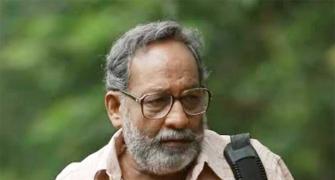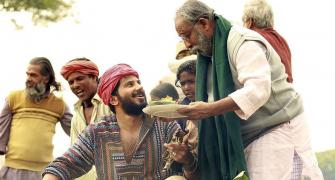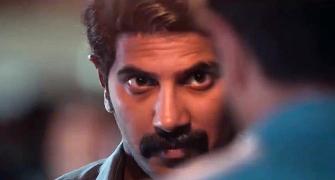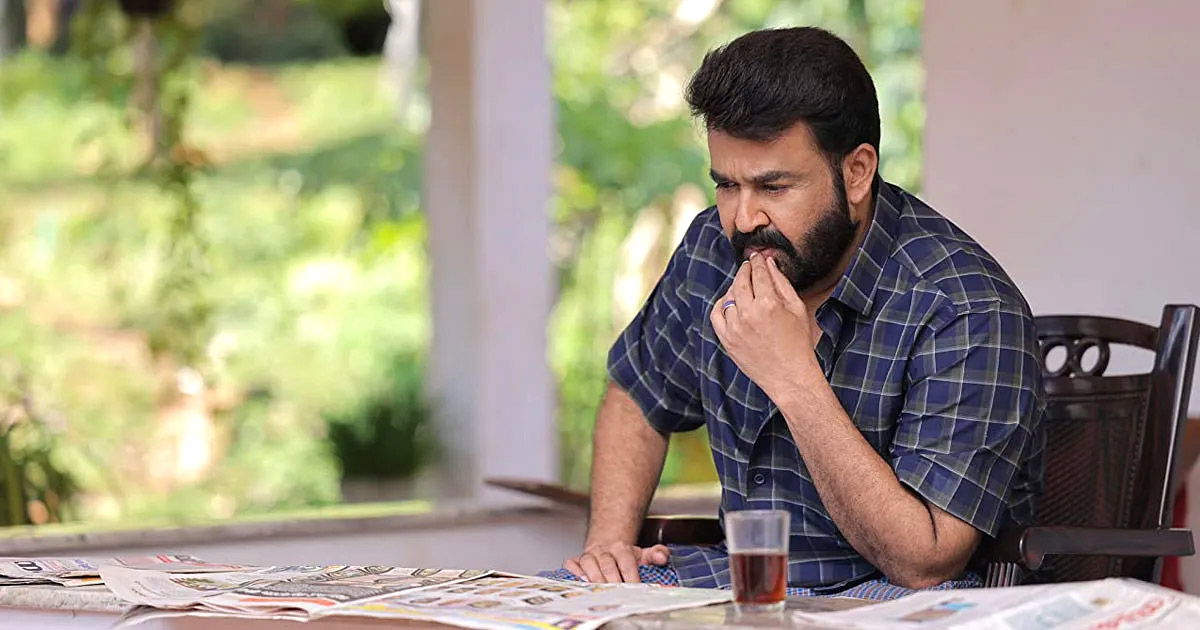'An actor should learn to separate the actor and the character.'
'Me the actor and me the character should never intermingle.'
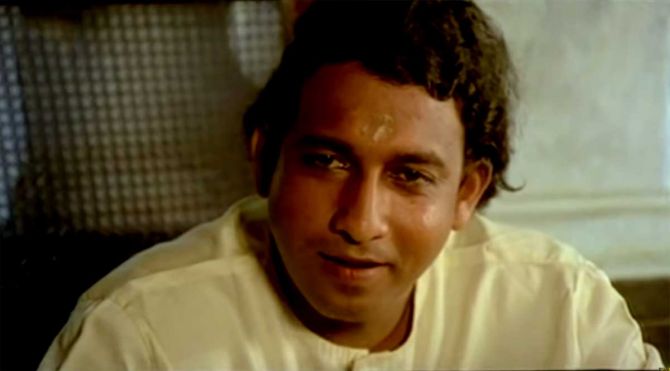
This interview with the legendary actor Nedumudi Venu, who passed into the ages on October 11, 2021, was first published on Rediff.com in July 1998.
Nedumudi Venu needs no introduction to those familiar with quality cinema. One of the finest actors in Indian films, he is believed to have received short shrift from many an award committee.
This, despite him having even national awards in his kitty. He has made his mark in a variety of films, ranging from the trite to the extraordinary, exploring a range far wider than most of his contemporaries have.
Shobha Warrier met him at his residence, Thampu, in Thiruvananthapuram. Incidentally, it was with G Aravindan's Thampu that he first entered films.
The third of a multi-part interview with one of India's finest actors:
- PART I: 'In the city, you see only masked human beings'
- PART II: 'The artist in me does get dissatisfied'
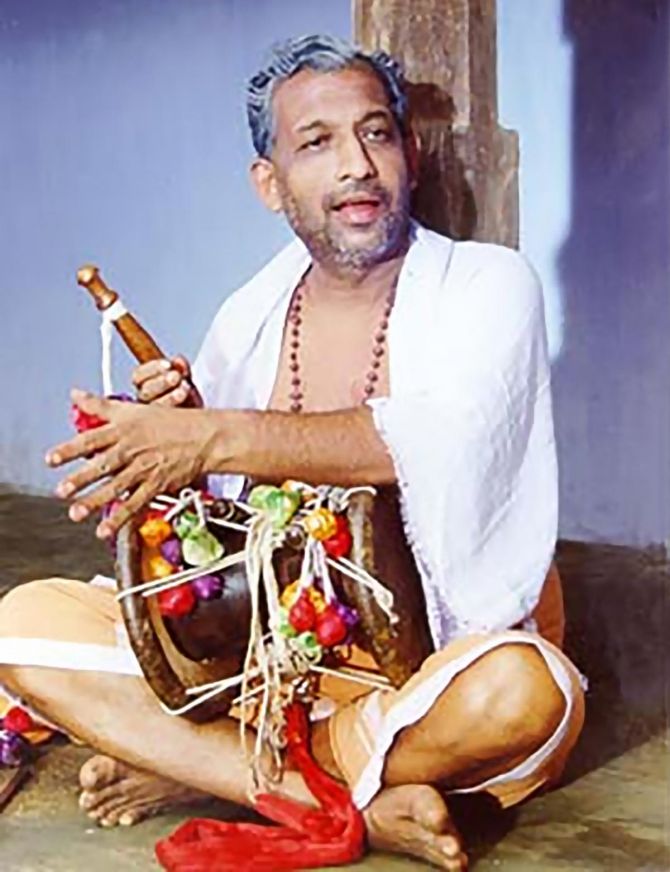
Which is more challenging to you, portraying a real life character or creating a new character?
It is easy to recreate who is there in real life. Even if you create a character from your own imagination or pick him up from real life, after some time, you reach a stage where your mind and soul becomes one with the mind of the character. It is a great experience to reach that stage.
When you become one with the character, won't you also experience the pains, agonies and exhilaration of the character?
It should not happen. Otherwise, you will really feel like doing what the character does in the film. No, it should never happen. An actor should learn to separate the actor and the character. Me the actor and me the character should never intermingle.
The character should always be under my control. It should obey me, but I should not obey the character. If I start obeying the character, it will be disastrous. I should have the ability to keep him away when it is necessary.
Like we change clothes?
Exactly. I should discard him the moment I cease to portray him as a character. I should never carry him with me in my mind.
I have heard some actors saying that they carry some characters with them for a very long time, even after the shooting is over.
Maybe there are actors like that. But I don't do that and I don't subscribe to the view also. My responsibility as an actor ends with dubbing for the character.
After that, I chuck him out of my system completely. There won't be a trace of him anywhere in my mind. We cannot and should not carry the dead body of a character all the time.
Does the character enter you, or you as an artist go inside the character?
We get a character which has no life as much. It starts breathing, it starts talking, it starts moving only when you give your breath to it. Otherwise, the character is lifeless and soulless.
The moment my job as an artist ends, I come out of the character and it is dead. This is what I do.
Don't think I do this to all the characters. No. Only if I feel the character needs life, only if the director demands it, will I enter into the mind and soul of the character.
With experience, we have acquired an ability to create any character, even if you are woken up from sleep and asked to portray it.
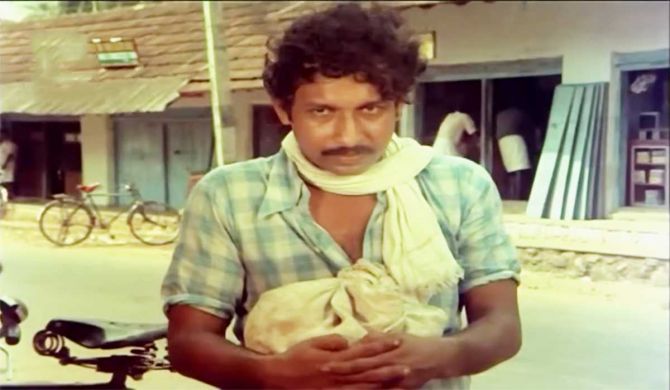
You have acted in all categories of films like the commercial, art and even in middle cinema. As an artist, which category of films give you the maximum satisfaction?
Popular cinema gives you security in life since they pay you well. They (the producers) pay you promptly, they look after you extremely well, and they consider it their duty to pick you up from your house and bring you back on the day promised by them earlier.
To some extent, it satisfies you. But the satisfaction of the artist in you is different. You portray a character and at the end of it, when you feel you have created something, you are satisfied.
Later on, maybe after several years, when you happen to see the film and feel that the person is not you but the character himself.... That will be the happiest moment in your life.
You also feel contented when people who have a good knowledge of art appreciate your work. You feel satisfied when your work is recognised.
I tend to look at the members in an award committee, and if you feel they are competent and capable to judge an art form, I feel happy and satisfied to accept the award. If I feel they are not competent enough, I tell myself, let one more be there.
How important are awards to you? A film becomes a huge success when thousands of people accept it but an award is given by a small group of people. So, what is more important to you, acceptance of the people or an award?
I cannot say which is more important. It all depends on the credibility and individuality of the people involved in an award committee and their knowledge of cinema. I agree that cinema is a mass media and since I act in that kind of movies, their acceptance is also essential for me.
There was a time when many viewers in Kerala could not differentiate between actors and characters. They believed that whatever they saw in movies was true. So, there was a kind of mad movie following then. They had a sycophantic attitude to film stars too. All this has changed now.
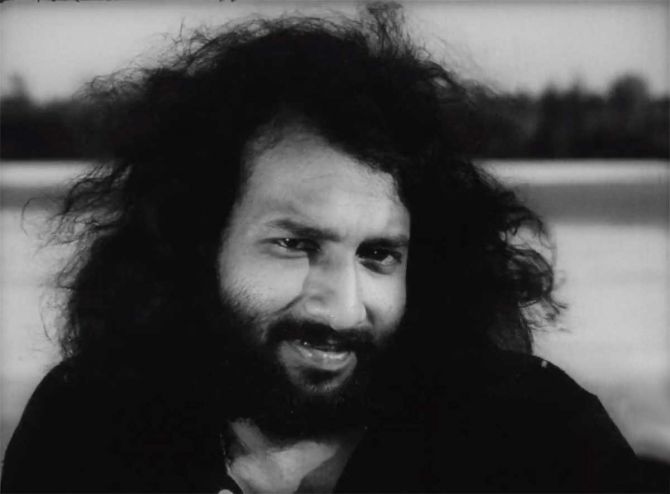
You said cinema is a mass media. Now let me ask you about Aravindan's films. Your entry into films was in Aravindan's Thampu. You have also acted in many of his films and you knew him well from your theatre days with Kavalam.
Aravindan's films were so personal that they were like paintings to a painter or a short story or a novel to a creative writer. What do you say about his movies?
Only the kind of films made by Aravindan took films to a creative level. Most people construct films, but Aravindan created films like you create a sculpture, like you paint or like you write a story. There is creativity involved in all this and also in Aravindan's films.
My doubt is that, can a film be as creative as a painting or a short story? In the case of a painting or a sculpture or a short story, only the creator is involved in its creation, but in the making of a film, so many people are involved.
Yes, a film also can be as creative as a painting. In the case of an Aravindan film, a mastermind is there behind the movie who decides how the movie should move. Others are like puppets in his hands and the master controlling everything -- every small detail.
So, the whole film is a visualisation of what he sees in his mind, what he creates in his mind. People like Aravindan tried to achieve that visualisation of his dreams.
When you act in that kind of movies, your role may not be that important. But the thrill lies in being a part of the creation. You might have noticed one thing, you tend to forget 99 per cent of the films that you see the moment you leave the theatre.
Films made by people like Aravindan outlive time. So, you feel thrilled to say, yes, I was also a part of that film.
Feature Presentation: Ashish Narsale/Rediff.com

